- Region
- Águilas
- Alhama de Murcia
- Jumilla
- Lorca
- Los Alcázares
- Mazarrón
- San Javier
-
ALL AREAS & TOWNS
- AREAS
- SOUTH WEST
- MAR MENOR
- MURCIA CITY & CENTRAL
- NORTH & NORTH WEST
- TOWNS
- Abanilla
- Abarán
- Aguilas
- Alamillo
- Alcantarilla
- Aledo
- Alhama de Murcia
- Archena
- Balsicas
- Blanca
- Bolnuevo
- Bullas
- Cañadas del Romero
- Cabo de Palos
- Calasparra
- Camping Bolnuevo
- Campo De Ricote
- Camposol
- Canada De La Lena
- Caravaca de la Cruz
- Cartagena
- Cehegin
- Ceuti
- Cieza
- Condado de Alhama
- Corvera
- Costa Cálida
- Cuevas De Almanzora
- Cuevas de Reyllo
- El Carmoli
- El Mojon
- El Molino (Puerto Lumbreras)
- El Pareton / Cantareros
- El Raso
- El Valle Golf Resort
- Fortuna
- Fuente Alamo
- Hacienda del Alamo Golf Resort
- Hacienda Riquelme Golf Resort
- Isla Plana
- Islas Menores & Mar de Cristal
- Jumilla
- La Azohia
- La Charca
- La Manga Club
- La Manga del Mar Menor
- La Pinilla
- La Puebla
- La Torre
- La Torre Golf Resort
- La Unión
- Las Palas
- Las Ramblas
- Las Ramblas Golf
- Las Torres de Cotillas
- Leiva
- Librilla
- Lo Pagan
- Lo Santiago
- Lorca
- Lorquí
- Los Alcázares
- Los Balcones
- Los Belones
- Los Canovas
- Los Nietos
- Los Perez (Tallante)
- Los Urrutias
- Los Ventorrillos
- Mar De Cristal
- Mar Menor
- Mar Menor Golf Resort
- Mazarrón
- Mazarrón Country Club
- Molina de Segura
- Moratalla
- Mula
- Murcia City
- Murcia Property
- Pareton
- Peraleja Golf Resort
- Perin
- Pilar de la Horadada
- Pinar de Campoverde
- Pinoso
- Playa Honda
- Playa Honda / Playa Paraíso
- Pliego
- Portmán
- Pozo Estrecho
- Puerto de Mazarrón
- Puerto Lumbreras
- Puntas De Calnegre
- Region of Murcia
- Ricote
- Roda Golf Resort
- Roldan
- Roldan and Lo Ferro
- San Javier
- San Pedro del Pinatar
- Santiago de la Ribera
- Sierra Espuña
- Sucina
- Tallante
- Terrazas de la Torre Golf Resort
- Torre Pacheco
- Totana
- What's On Weekly Bulletin
- Yecla


- EDITIONS:
 Spanish News Today
Spanish News Today
 Alicante Today
Alicante Today
 Andalucia Today
Andalucia Today
article_detail
Spanish News Today Editors Roundup Weekly Bulletin August 26

FEATURED ARTICLES: "10 key changes to the Animal Protection Law in Spain from September" and "Spanish Football Federation president set to resign over illicit World Cup kiss"
The celebrations haven’t stopped since Spain’s heart-stopping 1-0 triumph over England’s Lionesses in the final of the FIFA Women’s World Cup 2023 last weekend, but what nobody was expecting was for the victory to be completely overshadowed by the after-show antics of president of the Royal Spanish Football Federation (RFEF) Luis Rubiales, whose steamy embrace with one of the players in front of a packed stadium caused uproar here and abroad.
But while Rubiales may be in hot water, swimmers up and down the country were running full pelt out of the water this week after yet more shark and whale sightings – and even an attack!
There’s news too about slightly less threatening animals as Spain gears up for the introduction of the pioneering Animal Welfare Law and plenty more besides happening on the country’s beaches.
We’ve got all this and much, much more in this week’s round-up so read on…
Pet peeves
By now most pet owners will be aware that Spain is rolling out its Animal Welfare Law next month but since the information has been released in drips and drabs, a lot of people aren’t entirely sure how exactly it will affect them. And while it’s true that the legislation focuses heavily on harsher penalties for animal abusers, breeders and businesses, several of the rules will also impact regular owners.
As a guide, we’ve broken down the 10 most important changes that people should be aware of, but here are some of the key points:
From September 29, all cats and dogs who have access to the outdoors, be it a garden, terrace or even a fenced-in run, will have to be sterilised, and owners will also be expected to fully vaccinate their pets.
As well as purchasing civil liability insurance for their furry friends, dog owners will have to take a quick online course that focuses on proper care and behaviour management. The good news is that the dangerous breed list will be completely scrapped, but owners may still have organise a sociability evaluation for larger, more powerful animals.
If you’re planning a holiday, you’ll need to think ahead, as pets can’t be left alone for more than 72 hours and all owners will be required to register their animals on a central database. The idea is that pets can be quickly returned home if they are lost and that anyone who abandons an animal can be brought to justice. Owners who fail to register their pets will face a fine and the animals could even be taken off them.
A major change to the regulations that has caught a lot of people off guard is that certain species will soon be banned as pets in Spain. Some of the prohibited animals include primates, venomous snakes and reptiles and wild mammals that exceed 5 kilos in weight. Anyone who already owns a banned pet won’t necessarily have to give it up, but they will be required to notify the authorities within six months.

Sadly, Spain has the highest animal abandonment rate in all of Europe and only 21% of dogs that escape from their owners are ever reunited with their families. One of the main focuses of the Animal Welfare Law is to improve these awful statistics and reduce the number of dogs and cats found wandering on the country’s streets.
The latest report from the Affinity Foundation on the abandonment and adoption of dogs and cats in Spain notes an increase in abandonment in 2022, and a definite upward trend after the pandemic. The study, which uses data from a selection of rescues across the country, estimates that abandonment has risen by 1.3% in the last year.
In the Region of Murcia, animal shelters are at breaking point this summer and rescue workers point to the huge number of feral and dumped cats and kittens throughout the community: in 2007, 24% of the animals collected by shelters were cats, in 2014 the percentage rose to 28.5% and in 2022, 41%. In addition, almost half of the cats that arrive at shelters, 48%, are kittens from unwanted litters.
For the experts, mandatory sterilisation of cats is a key point in the new Animal Welfare Law and will hopefully mark a turning point across Spain.
Lionesses tamed
In a matchup that divided loyalties of Hispanophile English and Brits living in Spain, the Spanish Selección Feminina beat England’s Lionesses in the final of the FIFA Women’s World Cup 2023 in Sydney this Sunday August 20.
The match ran long with a total of 13 minutes of injury time in the second half to make up for Alex Greenwood’s treatment for a head injury she sustained, but the Lionesses were unable to equalise and eventually full time was blown on a World Cup final that hand fans around the world riveted.
Regardless of the outcome, and as cheesy as it sounds, the real winner from this competition has been women’s football as a whole. This has been the most watched Female World Cup in history, and the prevailing feeling is that it will go a long way to securing more respect and acceptance for the sport amongst the general public.

However, and that’s a big however, this victory was considerably tarnished shortly after the nail-biting match during the medal ceremony, when president of the Royal Spanish Football Federation (RFEF) Luis Rubiales embraced player Jenni Hermoso and kissed her full on the mouth in front of a packed stadium.
Official complaints flooded in and 33-year-old Hermoso herself later released a statement saying she “did not like it”.
The 46-year-old FA president initially brazened it out and issued a rather lacklustre apology, which Spain’s President Pedro Sanchez described as entirely inadequate. The former journeyman appeared prepared to ride out the storm but an announcement by FIFA on Thursday that they had opened disciplinary proceedings against Rubiales has put the final nail in the coffin and it’s widely believed that he will be forced to resign from his post at the hastily arranged General Assembly at the end of the week.
Something in the water
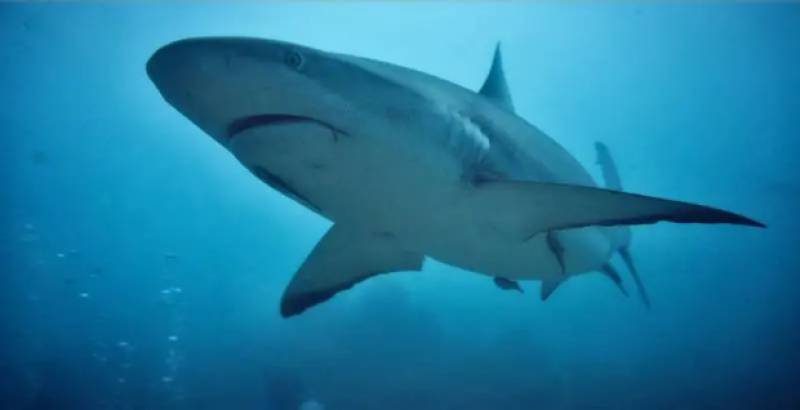
Shark sightings have been reported up and down the Spanish coasts all summer which is really nothing new, since many toothy species call these waters their home. However, packed beaches and rising sea temperatures mean that these terrifying animals are swimming closer and closer to the shore, sparking widespread panic and leading to the closure of several beaches.
While the experts continue to insist we have nothing to fear – the old ‘it’s more afraid of you than you are of it’ adage springs to mind – one Valencian man might just beg to differ after he was bitten on the leg by a blue shark earlier this week.
Incredibly, the victim was only wading in knee-deep water at Aigua Blanca beach in the town of Olivia, surrounded by other beachgoers, when he felt something bump into him.
“I saw a shadow, I noticed a blow to my left leg and then a bite to my right foot,” he said.
He was patched up at a nearby health centre where staff quickly informed the authorities that the man had suffered a shark bite. That beach, and two others where the same specimen had been spotted, was immediately closed but bathers were allowed back the following day.
Fearless residents and tourists returned to the sea as soon as the beaches were reopened and the victim himself said the shark attack won’t put him off either: “The first thing I am going to do when my foot heals is to go back. If you are afraid of things, you are finished,” he said.
Days later, chaos descended on a La Manga beach when a huge specimen resembling a blue shark was seen thrashing around in the shallows. Swimmers darted from the water but a few brave souls remained on the sand to watch the disoriented animal circle the shore before returning to open waters.
The same ‘shark’ was spotted a few hours later up the coast and it was at this point that specialist and UMU researcher María Pozo-Montoro confirmed that the specimen was actually a rather large but perfectly harmless tuna that probably escaped from a nearby fish farm in San Pedro de Pinatar.
While it’s usually sea creatures scaring the life out of swimmers, shocking scenes emerged from Andalucia this week of a luxury boat attacking a pod of killer whales. A disturbing video was posted online showing crew members aboard a catamaran in the Strait of Gibraltar firing shots and pyrotechnic devices at the group of whales.
Through close examination of the video by agents from Seprona and the Provincial Maritime Service, the luxury vessel was identified and officers realised it was headed for the port of Almeria.
Seprona has initiated a criminal investigation against the skipper of the boat and the person who shot at the protected whales.
Murcia
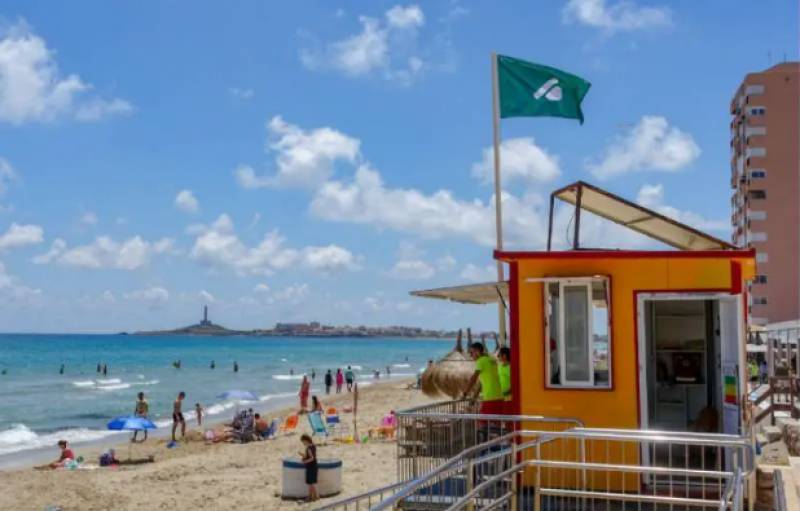
For those who may be wondering if it’s safe to go back in the water, they can breathe easy on the beaches of Cartagena where a potentially nasty dispute between lifeguards and their employers was quickly resolved earlier this week. Rescue workers at the El Portús post shut up shop for half an hour in protest over the fact that these hard-working staff don’t actually receive any lunch break.
However, while the dedicated employees closed the lifeguard facility between 1.30pm and 2.30pm, they continued to vigilantly watch bathers and swimmers at all times.
Thankfully, the employers were receptive to worker demands and quickly agreed to implement paid lunch breaks for lifeguards, as well as to replace all worn-out rescue equipment and supplies.
Lifeguards would have been little help in Aguilas late on Sunday night when stunned locals watched on in horror as a boat burst into flames just outside the port. More than 30 panicked witnesses phoned the Emergency Coordination Centre when the explosion lit up the sky shortly after 8pm.
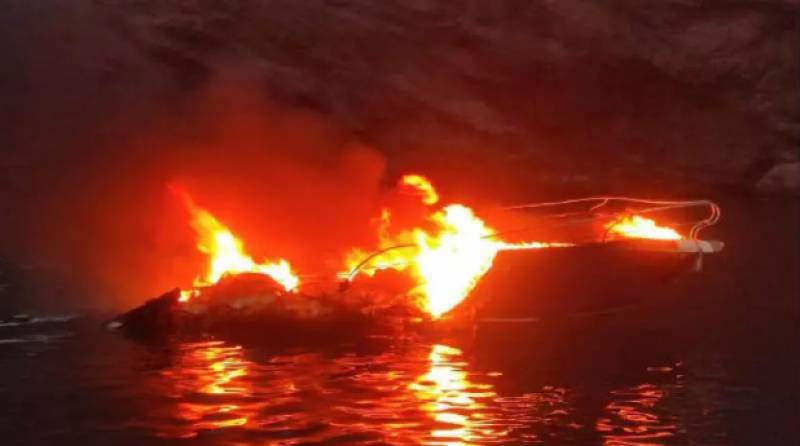 The force of the blast drove the sailboat into the rocks at Isla del Fraile but when rescue workers managed to scramble to the wreckage they found that one person had died. Four other people, all aged between 26 and 27, were severely injured and rushed to hospital suffering from burns as the pleasure boat, consumed with flames, sank just 20 kilometres off the coast.
The force of the blast drove the sailboat into the rocks at Isla del Fraile but when rescue workers managed to scramble to the wreckage they found that one person had died. Four other people, all aged between 26 and 27, were severely injured and rushed to hospital suffering from burns as the pleasure boat, consumed with flames, sank just 20 kilometres off the coast.Back on land, flat sharing has become the latest trend for young Murcianos struggling to pay extortionate rental prices and crazy mortgage interest rates, but the cost of these properties too is spiralling out of control.
A surge in demand has pushed the price of rooms for rent up by 12% in the last year to around 280 euros in Murcia city despite the fact that the number of shared flats has increased by 67% in the same period.
This tendency can also be seen in the rest of Spain, where the offer of shared apartments has risen by 34%. However, unlike in Murcia, at a national level prices have only increased by 3% up to 350 euros per month.
When it comes to prices, Barcelona is the most expensive city in Spain to rent a room, since landlords charge, on average, 485 euros per month. On the other hand, renters will get the biggest bang for their buck in Ciudad Real, with flat shares going for as little as 180 euros.
Rent isn’t the only thing going up and shoppers have noticed a huge increase in the price of groceries in Spain over the last 12 months or so. In the Region of Murcia choice is everything and new stores are springing up all the time, but the peoples’ favourite continues to be Mercadona, which has scored the top spot as the number one supermarket for the second year running.
According to the list published by Inforetail, the Valencian chain held an incredible 21.6% of the market share at the end of the first quarter of 2023, with 63 supermarkets covering almost 100,000 square metres of retail space.
Coming in a distant second is Spar Sureste, which has managed to corner 9.3% of the Murcian market followed by Carrefour, which was bumped up from fourth position in 2022.
Carrefour stole the spot from DIA and, somewhat surprisingly, Consum supermarkets only managed to scrape fifth place this year even though the brand runs 48 supermarkets in the Region.
Check out our EVENTS DIARY for more ideas of what to do in the Region of Murcia:
Spain
People are worn out at this stage from stories of Brits and other holidaymakers causing trouble in Spain and this summer, the Mallorca party spot of Magaluf has definitely been the protagonist. But the authorities are finally sitting up and taking notice and, in an attempt to make an example out of badly-behaved visitors, have fined five tourists a whopping 35,000 euros each for one of the most dangerous behaviours seen on the islands: balconing.
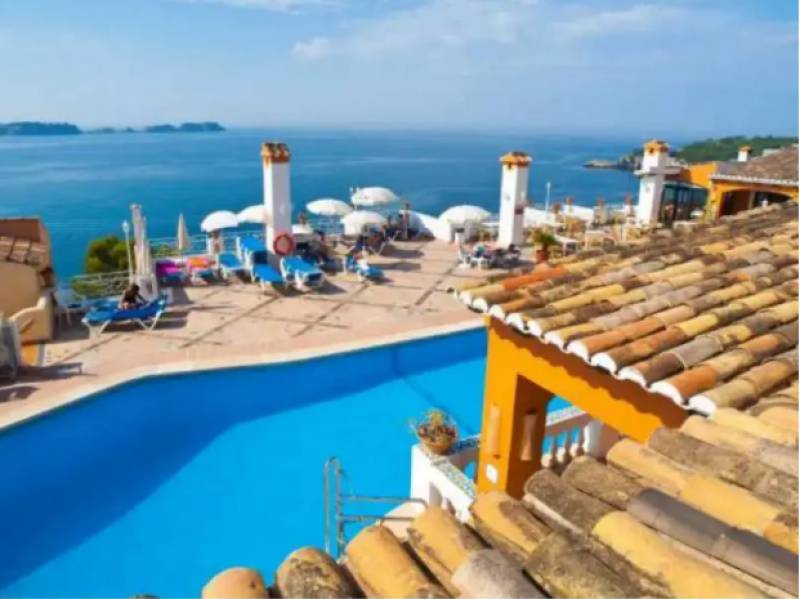
Balconing is a trend which really hit the headlines last year and involves climbing between hotel rooms via balcony railings, or even jumping from outdoor terraces into the pool below. Holidaymakers risk life and limb with this reckless behaviour and far too many people have already died in horrific falls.
This latest bunch of idiotic holidaymakers was also turfed out of their hotels, according to Calvia council boss Juan Feliu, who hopes that these hefty fines will act as a “powerful deterrent” against such idiotic and dangerous behaviour.
“Balconing is not tolerated in our municipality,” he said. “It is an irresponsible practice that can cause serious, irreversible injuries and even death.”
A series of new laws introduced back in 2020 made balconing illegal and flouters can be fined as much as 60,000 euros. In this case, the authorities haven’t revealed the nationalities of the tourists who were sanctioned or how they intend to enforce the fines.
The Balearic Islands government has also implemented some strict regulations in the likes of Magaluf, El Arenal and Playa de Palma, such as bans on alcohol sales between 9.30pm and 8am, outlawing party boats and limiting booze at all-inclusive resorts.
Staying with Mallorca and a young Irish man was arrested on the beach this week on suspicion of selling drugs to tourists. When his bag was searched on Playa Son Matias in Palmanova, officers found quantities of cocaine, viagra and ecstasy tablets as well as more than 500 euros is cash, which investigators believe he had earner from pedalling narcotics to other holidaymakers.
Just days before, another Irish man was arrested at Ibiza Airport when a search of his luggage revealed illegal drugs in his suitcase. The 38-year-old had stuffed 28 kilos of cocaine, 15 ecstasy tablets and several grammes of cannabis resin into an empty shower gel bottle.
 There’s bad news for travellers as budget carrier Ryanair has warned that the price of plane tickets is set to increase even more thanks to a decision by Aena to hike up airport fees for airlines by more than 4% from March next year. The Spanish company has blamed costly jet fuel and an unprecedented demand for the increases but, unsurprisingly, the news has been met with considerable backlash from both airlines and customers.
There’s bad news for travellers as budget carrier Ryanair has warned that the price of plane tickets is set to increase even more thanks to a decision by Aena to hike up airport fees for airlines by more than 4% from March next year. The Spanish company has blamed costly jet fuel and an unprecedented demand for the increases but, unsurprisingly, the news has been met with considerable backlash from both airlines and customers.In theory, the rates for airlines are supposed to be frozen until 2026 given the financial climate, but the law does allow Aena to pass on any extraordinary costs that are out of their control.
Ryanair isn’t taking the proposal lying down though and CEO Eddie Wilson has vowed to lodge a formal appeal against the decision.
The low-cost airline accused the Spanish company of a “brazen attempt to ignore the law.”
“Aena’s attempt to circumvent the five year charge freeze imposed by the Spanish government in 2021 runs counter to government policy to support growth,” he added.
“Ryanair calls on the Spanish Council of Ministers and the Spanish Regulator (CNMC) to protect passengers and local economies by ensuring Aena continues to respect the ruling made by the Spanish Government in 2021 to freeze airport charges until 2027.”
Alicante
Pricey flights aren’t dampening the demand for trips to Alicante, where the tourist sector has experienced a terrific rebound. The latest figures from the National Institute of Statistics (INE) published this week show that a whopping 379,641 visitors descended on the province during the month of July, culminating in more than 2 million hotel stays.
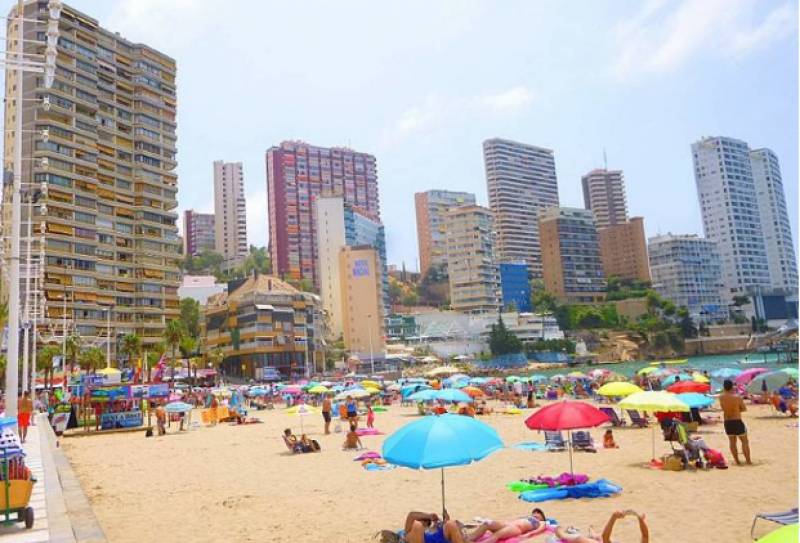 Benidorm was the place to be this high season, attracting an incredible 60% of all hotel guests in Alicante last month with 1,227,448 overnight bookings. Thanks to an influx of foreign tourists, Benidorm is now ranked as number five in Spain for the highest number of stays in one month.
Benidorm was the place to be this high season, attracting an incredible 60% of all hotel guests in Alicante last month with 1,227,448 overnight bookings. Thanks to an influx of foreign tourists, Benidorm is now ranked as number five in Spain for the highest number of stays in one month.Across Spain though the bump in foreign travellers was counteracted somewhat by a significant drop in domestic tourists, but the experts believe this is only a temporary blip as a result of the snap general elections called for July.
In any case, last month, Andalucia, Catalonia and the Valencian Community were the three most popular destinations in Spain for holidaymakers, accounting for 23.8%, 15.2% and 12.8% of the total overnight stays, respectively.
One thing that might have been putting off tourists to Alicante, or to the Orihuela Costa at least, is the absolute lack of facilities on the area’s beaches. Due to a row over contracts the shores have been devoid of all beach bars, sun loungers, umbrellas, water sports and even toilets since the beginning of the year. As a result, many disgruntled bathers have packed up and moved to the neighbouring beaches of the Region of Murcia, where they can at least be guaranteed a cool beer and somewhere to relieve themselves.
But there have been some improvements this week, as the newly-appointment council has allowed food trucks to set up in the car parks of three of the most popular beaches: La Caleta in Cabo Roig, Cala Capitán, also in Cabo Roig and Cala Bosque in La Zenia.
These new facilities are open every day between 8am and 8pm and serve a wide variety of drinks and snacks. For many locals though, with the summer almost over, this temporary solution is just too little too late and why it didn’t occur to the powers that be to erect food trucks earlier in the summer is anyone’s guess.
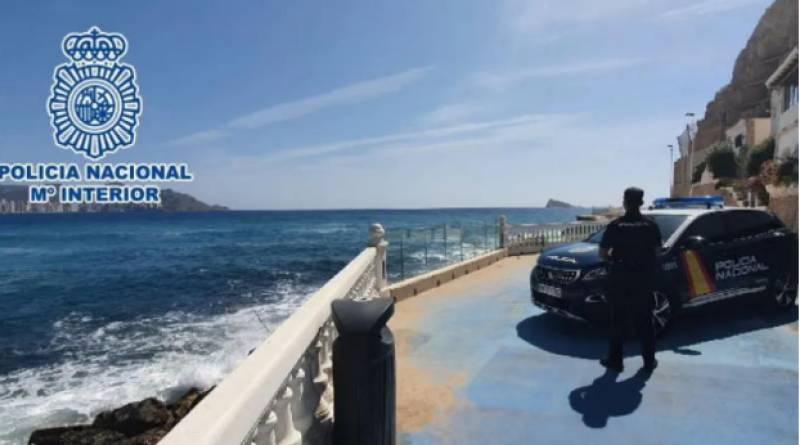
Alicante police have been scoring plenty of wins lately and have been widely commended for cleaning up the streets of unwanted criminals, but one recent arrest pretty much fell into their laps.
The case involves a 59-year-old Russian citizen who showed up at his local police station in Benidorm to seek asylum in Spain. While officers were processing his request they did a little digging into his background and found that the man was the subject of an international arrest warrant issued by Interpol for an alleged crime of fraud.
According to Russian authorities, the suspect was the general director of a company that suffered millions in losses between 2015 and 2017 due to the “mismanagement” of business funds. He was facing a ten-year prison sentence when he fled Russia for Spain.
He was promptly arrested and will be extradited.
Meanwhile, an Alicante court has sentenced a Dutch expat to 18 years behind for the 2020 murder of his partner in the town of Moraira. The original jail term of 22 years has since been reduce, but an appeal by the defendant based on the “humiliation” he suffered due to his partner’s alleged cheating was roundly rejected by the Alicante jury.
The gruesome murder was committed after the couple had been on a pub crawl and an argument broke out when the suspect accused his girlfriend of kissing another man. Witnesses saw them leaving the last bar together and then the pair went to a nearby estate agency, where the Dutch man worked.
As the woman walked into the bathroom, her assailant attacked and stabbed her a total of 16 times before slashing her throat. He then wrapped the body in a blanket and dumped it in a rubbish container outside.
It didn’t take police long to discover the hastily hidden corpse and the Dutch man confessed to the murder.
Tragically, his 34-year-old victim left behind a young child and the court heard that she had actually taken out a restraining order against her attacker in the past, although it had expired.
Check out the Costa Blanca What’s On and Where to Go Facebook group to see more things to do around Alicante province!
Andalucía

It hasn’t been a terribly good week for British expats living in Andalucia and tales of two separate horrendous assaults have emerged in recent days.
The first involves 80-year-old former Royal Navy commando David James, who is lucky to be alive after his neighbour in La Viñuela, Malaga, also from the UK, ran over him four times with his car.
The sorry saga began when David was returning home from lunch with his wife and a couple of friends and the wife of neighbour ran outside screaming “he’s going to kill me.” She was followed by her 70-year-old ex-councillor husband, who was visibly drunk.
Nevertheless, he climbed into his car and seeing that he was about to drive off, David and another resident blocked off the road with their own vehicles. With nowhere to go, the suspect stopped the car and David approached him to try and take his keys.
Speaking from his hospital bed David said: "I then heard his engine rev and I knew what was going to happen, he came at me at full speed and knocked me against the wall.
"I smashed my head and I thought I was a goner, but somehow I was still conscious.
"Then he reversed over me, before running me over for a third time, this time on my arm, before reversing over me one more time”.
David’s friends managed to drag him to safety and call the police. His attacker, named only as DB, has been arrested on suspicion of attempted murder and faces a slew of other charges as three other people were injured during the shocking incident.
Things didn’t work out much better for another British homeowner in the nearby Malaga town of Alhaurin el Grande, who was tortured by three masked invaders until he revealed where he had hidden a substantial amount of cash. The victim, who had recently sold his home in anticipation of a move back to the UK, had been given more than 10,000 euros as a deposit.
Investigating officers believe the thieves must have had inside information about this fact.
According to police reports, the 60-year-old Brit was home alone and eating dinner when the thieves, all wearing balaclavas, broke in. They used cable ties to secure their victim before beating him and zapping him with a stun gun until he told them where the cash was stashed.
The criminals made off with the money and the Briton eventually managed to free himself. He made his way to a neighbour’s house and was taken to hospital.
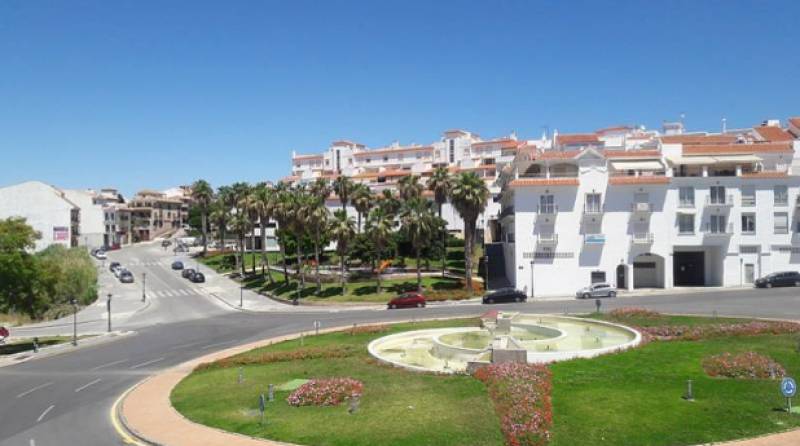
You may have missed…
- Spain must triple the number of lynx to avoid extinction, according to experts.
Lynx conservation work in the Region of Murcia isn’t exactly going smoothly and the reintroduction of breeding pairs to the highlands of Lorca has been nothing short of disastrous so far.. - How to recognise camouflaged motorbike cops in Spain.
Mobile radars change position and are often installed in vehicles belonging to traffic officers. These are also a usual sight on Spanish roads but motorcycle police have also joined the team. - Historic water mill in Lorca could be converted into a hotel and leisure complex.
The historic flour mill known as the Molino del Escarambrujo, approximately a kilometre to the west of the city of Lorca, was declared an Item of Cultural Interest in 2017 and acquired by the Town Hall. - Electricity prices soar in the midst of the Spanish heatwave.
This is the highest cost energy has reached since March and couldn’t come at a worse time, right in the middle of the fourth Spanish summer heatwave. - UK nationals top the ratings of foreign visitors to Cartagena in early summer.
Figures published by the Town Hall of Cartagena show that among visitors to the city who sought information at the tourist offices, non-Spaniards comfortably outnumbered those coming from within Spain, and that the largest group by nationality were the British!
That’s all for this week. Thanks for reading and we'll see you all for the bulletin again next week.
See you next week!
Contact Murcia Today: Editorial 000 000 000 /
Office 000 000 000




















